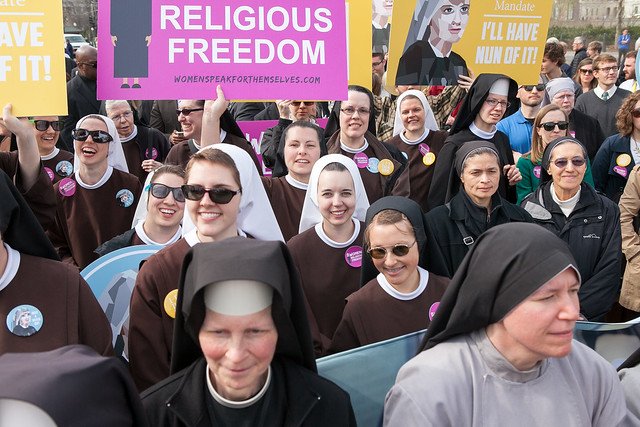
“True freedom of religion is possible only if it can express itself actively.” LA LIBERTÀ RELIGIOSA PER IL BENE DI TUTTI
[dc]T[/dc]he Vatican has released a document, “Religious Liberty for the Good of All,” calling for an expansion of religious liberty in the face of competing strains of religious fundamentalism and secular intolerance. While not addressing each and every conflict, the document is intended to express the relationship between civil law and religious law in the context of theology, anthropology, and political science.
Released last week with the approval of Pope Francis, the document was approved in 2018 by members of the Catholic Church’s International Theological Commission in connection with the Congregation for the Doctrine of the Faith.
“Religious Liberty for the Good of All” recognizes religious freedom as a universal human right for people of all faiths but criticized secular attempts to suppress religious expression under a pretext of cultural neutrality. The church recognized that it had previously only focused on religious freedom for Catholics but takes a significant step in understanding religious rights of all faiths and that it can still share the Gospel while working for the preservation of religious freedom for all.
The document tackles the complex interaction of fundamentalism and secular interests and history, and provides what might be one of the more balanced views on current events in which secularism is capturing large parts of the world, while fundamentalism is gaining ground in others:
Today’s religious radicalization, referred to as “fundamentalism,” in the context of different political cultures, does not seem a simple more “observant” return to traditional religiosity. This radicalization is often characterized by a specific reaction to the liberal conception of the modern state, due to its ethical relativism and its indifference to religion. On the other hand, the liberal state appears to many to be criticizable also for the opposite reason: that is, for the fact that its proclaimed neutrality does not seem able to avoid the tendency to consider the professed faith and religious affiliation an obstacle for the admission to the full cultural and political citizenship of individuals. A form of “soft totalitarianism”, one might say, which makes it particularly vulnerable to the spread of ethical nihilism in the public sphere.
The document continues with a description of a movement toward reactive fundamentalism:
In contrast to the classical thesis, which provided for the reduction of religion as an inevitable effect of technical and economic modernization, there is talk today of the return of religion to the public scene. The automatic correlation between civil progress and the extinction of religion, in truth, had been formulated on the basis of an ideological prejudice, which saw religion as the mythical construction of a human society not yet in control of the rational instruments capable of producing emancipation and well-being of the society. This scheme has proved inadequate, not only in relation to the true nature of religious conscience, but also in reference to the naive trust turned to the humanistic effects of technological modernization. Nevertheless, it is precisely theological reflection that has helped to clarify, in these decades, the strong ambiguities of what was hastily referred to as the return of religion. This so-called “return”, in fact, also presents aspects of “regression” towards personal values and democratic coexistence that are at the base of the humanistic conception of the political order and social bond. Many phenomena associated with the new presence of the religious factor in the political and social sphere appear to be completely heterogeneous – if not contradictory – with respect to the authentic tradition and cultural development of the great historical religions. New forms of religiosity, cultivated in the wake of arbitrary contaminations between the search for psycho-physical well-being and pseudo-scientific constructions of the vision of the world and of the self, appear rather to the believers themselves, as disturbing deviations of religious orientation. Not to mention the crude religious motivation of some forms of totalitarian fanaticism, which aim to impose terrorist violence, even within the great religious traditions.
This document deserves careful reading and consideration as it provides a comprehensive expression of the official contemporary Catholic worldview on religious freedom. The full document is available in Latin at the Vatican website, which can be loosely translated using Google Chrome, and an unofficial English translation of the first chapter is available at a link below.

Unofficial English Translation of the first chapter: “Religious Liberty for the Good of All.” https://www.catholicnewsworld.com/2019/04/new-vatican-document-shows-religious.html
Official Italian Document: “LA LIBERTÀ RELIGIOSA PER IL BENE DI TUTTI” http://www.vatican.va/roman_curia/congregations/cfaith/cti_documents/rc_cti_20190426_liberta-religiosa_it.html